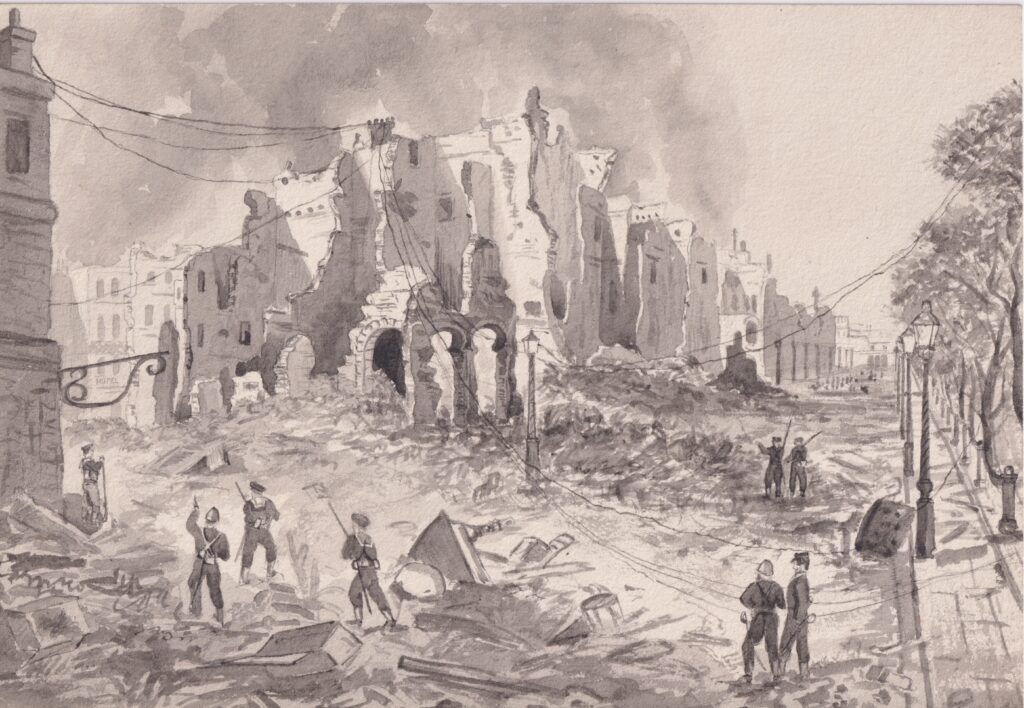Ch15.1. “Ruins on one side of Grand Square Alexandria"
“Ruins on one side of Grand Square Alexandria,” 1882, by Lieutenant Francis Henry Boyer. National Royal Navy Museum.
The British bombardment and invasion of Alexandria was one of the most cataclysmic events in modern Egyptian history, and the culmination of developments that had been accelerating for decades. Western interests in Egypt had been growing steadily from the late eighteenth century, from weapons and technology transfers to banking. The opening of the Suez Canal in 1869 brought renewed attention to Egypt’s strategic position in the world economy, coming on the heels of an extraordinary growth in cotton production as the result of the American Civil War. nominally still part of the Ottoman Empire, the Egyptian experienced wild swings, euphoria one moment and bankruptcy the next. Political instability followed. In July 1882, modern warships bombed the port city. British military occupation followed in what become known as the “Veiled Protectorate.” With the final dissolution of the Ottoman Empire after WWI, Egypt became a formal British colony (technically a protectorate) and continued controlling he country until 1954.
